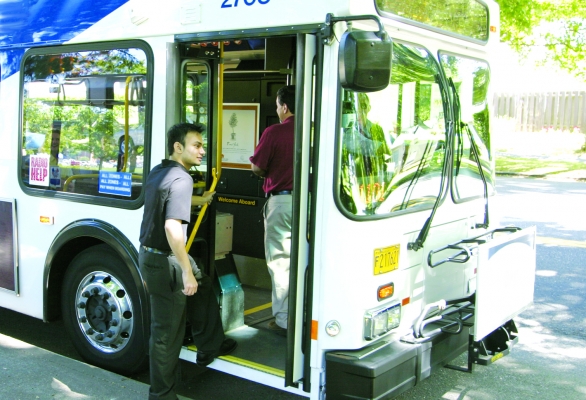What if the fare isn't fair? TRB 2014
Posted on January 6, 2014

In a NITC project, Steven Farber looked at the equity effects of distance-based fares. Farber presents his work Monday at the Transportation Research Board annual meeting in Washington, D.C.
Note: In advance of the Transportation Research Board's annual meeting, the biggest forum on the transportation research calendar, OTREC.us is profiling some of the researchers who will present their work.
Steven Farber, of the University of Utah, is conducting research for the Utah Transit Authority (UTA) surrounding its potential move to a distance-based fare system.
Typically, transit fares are a flat fee based on a given window of time: riders may pay $2.50 to ride anywhere they wish within a two-hour period, for example.
This system can negatively impact low-income populations, who as a general rule tend to travel shorter distances than people in higher income brackets. In a flat fare system, many low-income riders end up subsidizing the longer trips of wealthier riders.
The UTA is considering changing its fares to a distance-based system, wherein riders would pay a fee determined by how far they travel.
Farber, along with co-investigators Keith Bartholomew and Xiao Li of the University of Utah, Antonio Páez of McMaster University, and Khandker M. Nurul Habib of the University of Toronto, conducted a spatial analysis of data from the Utah Household Travel Survey collected in Spring 2012.
They were searching specifically for pockets of low-income riders, making transit trips of longer distances, who might be negatively impacted by the new system. They concluded that:
- Distance-based-fares generally result in lower fares for those who need it most, but
- Pockets of mismatch do exist and require further analysis.
- Demographic trends, namely the suburbanization of the poor and elderly, pose a threat to equality.
- The burden on long-distance low-income travellers can be mitigated through reduced flat-fare components.
Simultaneously, the research team developed a software tool to allow the UTA to perform similar analyses more quickly in the future. They created a GIS-based Decision Support System for evaluating the social equity impacts of transit fare policy.
Farber presents his work at 8:30 a.m., Eastern time, Monday, Jan. 13 at the Washington Hilton. His paper, “Social Equity in Distance-Based Transit Fares,” is available here:
https://trec.pdx.edu/OTRECUS/files/Steven_Farber.pdf
The TRB annual meeting runs Jan. 12-16 in Washington, D.C. For more information in OTREC's participation, and to read other profiles in this series, click on the banner below:

